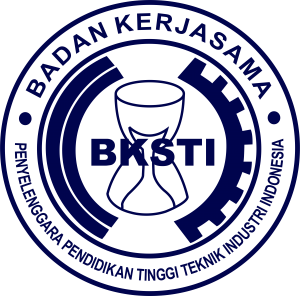Studi Analisis: Pengaruh Disiplin Kerja Dan Motivasi Terhadap Kinerja Karyawan dengan Mediasi Kepuasan Kerja Di PT. T
DOI:
https://doi.org/10.37090/indstrk.v8i3.1228Abstract
The aim of this research is to analyze the influence of work discipline and work motivation with the mediating variable namely job satisfaction on employee performance at PT. T, either directly or indirectly. This research uses a causal approach and involves all employees PT. T. The sample in this research is a saturated sample of 39 employees PT. T. Data collection is carried out through questionnaires. This research uses a approach quantitative and analyzes data using statistical analysis, using Outer Model, Inner Model and Hypothesis Testing. PLS (Partial Least Square) software was used to process the data. The research results showed that work discipline directly had a significant effect on employee performance with a probability value of 0.044 < 0.050, while work motivation and job satisfaction had no effect on employee performance with a probability value of 0.871 > 0.050 , 0.861 > 0.050, then job satisfaction which is a mediating variable on work discipline and work motivation indirectly has no influence on employee performance with a probability value of 0.950 > 0.050, 0.873 > 0.050 at PT. T.
Keywords: Employee Performance, Hypothesis Test, Inner Model, Job Satisfaction, Outer Model, Work Discipline, Work Motivation
Downloads
References
Afandi, P. (2016). Konsep dan Indikator Manajemen Sumber Daya Manusia. Yogyakarta: Deepublish.
Any Mardiani & Maya Sari Dewi. (2015). Pengaruh Kepuasan Dan Komitmen Organisasi Pada Kinerja karyawan Bank Kalsel. Jurnal Wawasan Manajemen, 269-279.
Ghozali, I., & Latari, H. (2015). Konsep, Teknik dan Aplikasi dengan Menggunakan Smart PLS 3.0 Dalam Penelitian Empiris. Semarang: BP Undip.
Gilang Pratama & Elistia. (2020). Analisis Motivasi, Kepemimpinan Transformasi Dan Budaya Organisasi Terhadap Kinerja Dimediasi Kepuasan Kerja Pada Angkatan Kerja Gen Z. Jurnal Ekonomi: Journal of Economic, 144-152.
Hair, J. F. et. al. (2017). Los Angeles: SAGE Publications.
Hasibuan, M. (2017). Manajemen Sumber Daya Manusia. Jakarta: Bumi Aksara.
Ken Kelley et al. (2018). A Novel Measure of Effect Size for Mediation Analysis. Psychological Methods, Vol. 23, No. 2, 244–261. doi:10.1037/met0000165
Kristanti, D., & Pangastuti, R. L. (2019). Kiat Merangsang Kinerja Pada Karyawan Di Bagian Produksi. Surabaya: Media Sahabat Cendekia.
Noor, J. (2013). Penelitian Ilmu Manajemen. Edisi Pertama. Jakarta: Kencana Prenada Media Group.
Ogbeibu et al. (2020). A praxis forsustainable Development,Research Article, Business Strategy and the Environment. Leveraging STARA Competencies and Green Creativity To Boostgreen Organisational Innovative Evidence:. doi:10.1002/bse.2754
Pettalolo, I. (2019). Pengaruh Kinerja Pada Kualitas Pelayanan Pegawai Dinas Pekerjaan Umum Provinsi Sulawesi Tengah. Jurnal : Katalogis, Volume I Nomor 7. .
Sedarmayanti. (2017). Perencanaan dan Pengembangan SDM dalam Meningkatkan, Kompetensi, Kinerja dan Produktivitas Kerja. Bandung: PT Refika Aditama.
Setiyani, F. (2015). Pengaruh Pengawasan dan Kepemimpinan Terhadap Disiplin Kerja Security PT. Karya Satria Abadi Pekanbaru. Jom FEKON, 2(1), 1–15.
Simamora, H. (2016). Manajemen Sumber Daya Manusia. Jakarta: Gramedia.
SmartPLS 4. (2023). Koefisien Jalur. Karawang: Universitas Singaperbangsa Karawang.
Tanjung, H. (2019). Pengaruh Kepuasan Kerja dan Keterlibatan Kerja Terhadap Komitmen Organisasi Pekerja. Jurnal Humaniora: Jurnal Ilmu Sosial, Ekonomi dan Hukum, 4(2), 36–49.
Downloads
Published
Issue
Section
License

This work is licensed under a Creative Commons Attribution-ShareAlike 4.0 International License.









